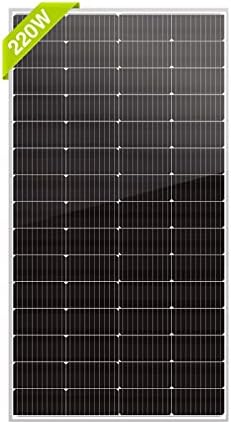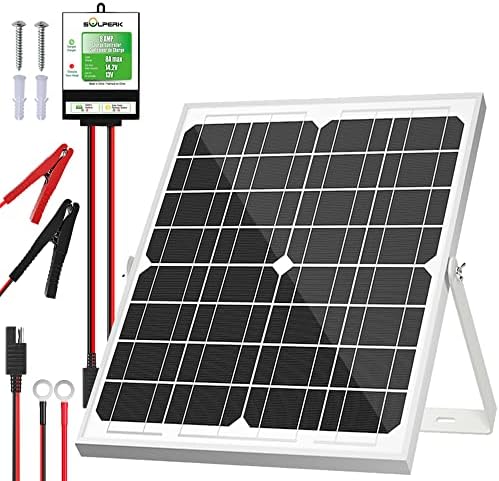# Energizing Independence: Harnessing the Power of Off-Grid Solar Systems
Picture this: You’re sipping your morning coffee, basking in the warm sunlight filtering through the trees, while the world around you hums with the sound of nature. There’s a unique thrill in knowing that while others are tethered to the grid, your energy needs are met entirely by your own solar power system. That’s the beauty of off-grid living, especially when combined with solar energy! In this article, we’ll explore the ins and outs of off-grid solar systems, how they can transform your living experience, and offer some fun tips along the way.
## The Joy of Solar Independence
Living off the grid allows you to break free from traditional power sources and lead a lifestyle that aligns closely with nature. But it all begins with a solar system that meets your energy needs. Imagine generating your own electricity from the sun, reducing your carbon footprint, and saving money on energy bills. Solar panels are not merely a modern trend; they are a pivotal part of sustainable living.
### Why Go Off-Grid?
Before diving deep into off-grid solar systems, let’s break down why you might want to consider this lifestyle:
1. **Sustainability:** Harnessing the sun’s energy means you’re contributing to a cleaner planet. The reduction in fossil fuel dependency is crucial for environmental health.
2. **Cost Savings:** While upfront costs might be a concern, over time, you’ll find your energy bills drastically reduced. Once your system is up and running, solar energy is essentially free!
3. **Self-Sufficiency:** Off-grid living fosters a sense of independence. You’re no longer dependent on external power sources or fluctuating energy prices.
4. **Connection with Nature:** Living off the grid often means immersing yourself more deeply in your surroundings. This can lead to a more rewarding and fulfilling lifestyle.
### The Components of an Off-Grid Solar System
Creating an off-grid solar system requires a good understanding of its components. Here’s a quick overview:
#### 1. Solar Panels
These are the heart of your solar energy system. They convert sunlight into electricity. The number and type of solar panels you need will depend on your energy consumption.
#### 2. Inverter
Solar panels produce direct current (DC) electricity, while most home appliances use alternating current (AC). An inverter converts DC into AC, allowing you to use your typical household devices.
#### 3. Battery Storage
Since sunlight isn’t available 24/7, battery storage is vital. These batteries store excess energy generated during sunny days for use at night or during cloudy weather.
#### 4. Charge Controller
This prevents your batteries from overcharging and prevents them from depleting too deeply, extending their lifespan and ensuring optimal performance.
#### 5. Backup Generator
Though not an essential part of all off-grid systems, having a backup generator can provide peace of mind, especially during extended bouts of cloudy weather.
### Setting Up Your Off-Grid Solar System
Now that we’ve examined the components, let’s explore how to set up your off-grid solar system:
1. **Calculate Your Energy Needs:** Determine how much energy you consume on average. This includes everything from lights and appliances to any power tools.
2. **Choose Your Equipment:** Based on your energy needs, select the appropriate solar panels, inverters, and batteries.
3. **Installation:** While some opt to DIY their installation, hiring a certified installer can save time and potential headaches.
4. **Connect the System:** Set everything up with the necessary wiring, ensuring your charge controller is appropriately configured.
5. **Monitor Your System:** Regularly check the health of your solar system, including battery performance and energy output.
### Pro Tips for Off-Grid Living
– **Start Small:** If you’re new to off-grid living, consider starting with a smaller solar setup and expanding as you gain experience.
– **Mind Your Energy Use:** Practice energy conservation. Use energy-efficient appliances and consider reducing your energy demand by switching to LED lights.
– **Invest in Quality Equipment:** While it may be tempting to opt for lower-cost equipment, investing in high-quality solar panels, batteries, and inverters will save you money and time in the long run.
– **Stay Informed:** The solar industry is continuously evolving. Staying updated on new technologies and best practices can enhance your system’s efficiency.
### Common Mistakes to Avoid
To ensure a smooth off-grid solar journey, be aware of some common pitfalls:
1. **Underestimating Energy Needs:** It’s easy to misjudge how much energy your household consumes, leading to inadequate setup.
2. **Neglecting Maintenance:** Solar panels and batteries require periodic maintenance to ensure efficiency. Regular checks can prevent costly issues down the line.
3. **Ignoring Environmental Factors:** Your geographic location plays a significant role in solar energy generation. Ensure your system is designed to account for seasonal changes in sunlight.
4. **Overlooking Local Regulations:** Before setting up, check local zoning laws and regulations regarding solar installations. Compliance can save you from future legal headaches.
### Living Off-Grid: The Daily Experience
Living off the grid isn’t all sunshine and roses; it comes with its unique challenges. However, it also fosters creativity and resourcefulness. Here are some aspects to embrace:
#### Cooking and Food Preparation
Many off-grid homes rely on propane stoves or wood-burning ovens—both efficient and often quite pleasant to use. Consider stocking up on canned goods or dried foods for periods when fresh produce might not be readily available.
#### Water Resources
Off-grid living frequently means sourcing water independently. Rainwater collection systems and deep wells are two popular options. Ensure you have a reliable filtration system for safe consumption.
#### Internet Connectivity
Yes, you can stay connected even off-grid! Satellite internet and wireless signal boosters can provide access if you need to work or stay in touch with loved ones.
#### Community Connection
Living off-grid often encourages a strong sense of community among fellow off-gridders. Joining local homesteading groups can provide valuable resources and support.
### Conclusion
Embracing an off-grid solar lifestyle can be one of the most rewarding choices you make. It opens doors to sustainability, cost savings, and a deeper connection with nature. By understanding the components of an off-grid solar system, anticipating challenges, and following best practices, you can ensure a smooth transition into a self-sufficient lifestyle.
Remember, the sun’s energy is at your fingertips, just waiting to be harnessed. So grab your solar panels, roll up your sleeves, and embrace the exhilarating adventure of off-grid living!
### Final Pro Tips
– **Document Your Journey:** Keeping a journal or blogging about your experiences can help others learn and connect with you.
– **Experiment with Energy Sources:** Supplement your solar system with additional renewable sources, such as wind or micro-hydro, depending on your location.
By diving into the world of off-grid solar systems, you’re not just investing in a lifestyle; you’re embarking on a journey toward freedom and independence. Whether you’re urban or heartily rooted in the countryside, every little bit counts when it comes to sustainable living. So gear up for a brighter future—literally!



